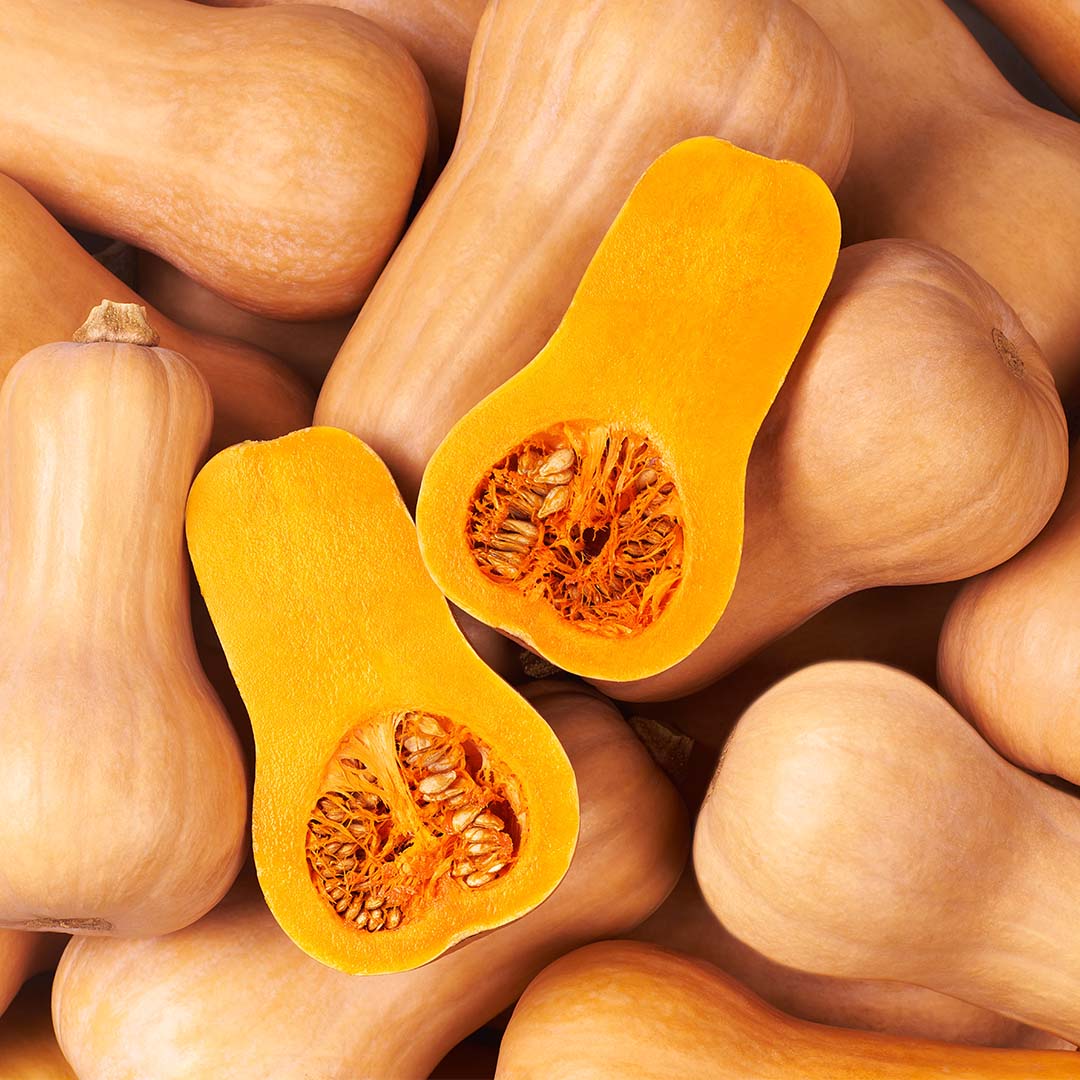Beta-Carotene
Back to ingredients
From: UK
Food source: Carrots, sweet potatoes, butternut squash, red and yellow peppers, apricots, cantaloupe, leafy green vegetables, peas, broccoli and romaine lettuce.
Benefits of Beta-Carotene
- Eye health
- Pregnancy
What is Beta-Carotene?
Plants contain red, orange and yellow pigments called 'carotenoids' that give them their colours. One type of carotenoid is ‘beta-carotene’, which gives vegetables like carrots and pumpkins their distinctive and vibrant colour. Beta-carotene is particularly important because as our body can convert it into Vitamin A, giving it a range of health benefits, particularly for our eyes.
Vitamin A is crucial for the maintenance of healthy eyes. Vitamin A helps to convert the light that hits your eye into an electrical signal that goes to your brain. It is a component of 'rhodopsin', a pigment that is in your retina and is very sensitive to light, so it’s responsible for vision adaptation in the dark. Together, Beta-Carotene and the Vitamin A that it helps produce, as well as other Vitamins like Vitamin E, help to protect against a range of ocular conditions and maintain your vision. You may also enjoy reading ‘Tips for better eye health’.
Beta-Carotene is also a powerful antioxidant, which helps to ‘scavenge’ and neutralise ‘free radicals’. This helps keep the levels of free radicals manageable, protecting your eyes from environmental stresses and the onset of conditions such as age-related macular degeneration (AMD).
Beta-Carotene also becomes important during pregnancy, as women require much more of it when they are carrying the baby and when they are lactating. Vitamin A is crucial to the development of the baby’s vision, breathing and immunity. Babies born with insufficient Vitamin A can be more susceptible to illness. So consuming healthy levels of Beta-Carotene through your diet when pregnant is one way to ensure you and your baby get enough of this vital Vitamin. Discover ‘A nutritionist recommended pregnancy diet guide’.
















